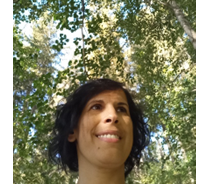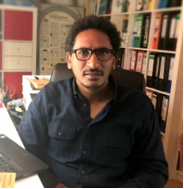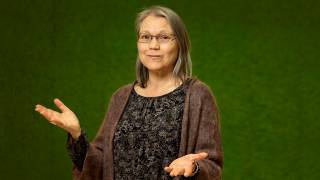Development cooperation including knowledge production and the use that underpin it have increasingly raised scholarly concerns. Critical researchers often ask questions such as: whose voice should be heard in development cooperation initiatives? Whose initiatives should be developed? Who should lead these initiatives? And which knowledge is – and which should be – considered relevant?
The researchers and practitioners raising these critical questions highlight that the sustainability of development can only come to be when institutions and individuals of the Global South become owners of development cooperation initiatives and when the knowledge built in these contexts drives development and education.
In education, multilateral and bilateral agreements resulting in development cooperation initiatives offer the much-needed funding and resources the continuous development of the countries of the Global South (Silva & Oliveira, 2021). Within these agreements, donor countries, international organisations and universities are among the actors most often involved in development. However, this help does not exist without criticism. While the interventions of international organisations have been fundamental in helping countries to cope with their social and structural challenges, these organisations, through their donations and support, strongly steer and influence policymaking at the national level in the countries of the Global South, often in such ways that reduce these countries’ ability to decide on their own public systems (Sultana, 2019; Menashy, 2018).
In this seminar, we will discuss two aspects within these broad topics of development cooperation and knowledge production: a) the influence of Finland in international organisations’ initiatives addressing education challenges in the Global South; b) the decolonization of higher education in Africa.
Abstracts:
Presentation 1: The Presence and Influence of Finnish Education Sector Expertise in International Organisations
Íris Santos, Tampere University
Some of the main results of the recently published report commissioned as part of UniPID Development Policy Studies (UniPID DPS), funded by the Ministry for Foreign Affairs of Finland (MFA) and managed by the Finnish University Partnership for International Development (UniPID) will be presented. The study analyses how Finnish education experts have been positioned within international organisations and have influenced development cooperation in the education sector. The analysis concludes that the participating education experts identify Finland as a small player compared to other reference countries involved in development cooperation in education. Consequently, resources, funds, and room for influence of these experts are limited.
Nevertheless, interviewed experts express their understandings of the importance of developing plans and projects with the leadership of actors of the countries where these initiatives are taking place (usually in the Global South) and by informing these with the knowledge locally produced. Thus, education development initiatives should go through a shift in the power relations typically characterising development cooperation, where international organisations (and donor countries, commonly from the Global North) offer (or impose) pre-made ready solutions to the countries where these initiatives are then implemented, to a partnership format where education plans and projects are built collaboratively in the local context, through negotiation processes were the voice of the national and local government actors and community leaders are valued and equally included in these initiatives.
Presentation 2: Contemporary politics of knowledge and decolonization of higher education in Africa: A historical perspective
Emnet Woldegiorgis, University of Johannesburg
This presentation covers the historical trajectories of decolonization debates in African higher education. The paper argues that deconstructing the historical trajectory of the past and understanding the multifaceted challenges of the African higher education systems is crucial in addressing issues critical to the future of the sector. This presentation highlights how the colonization of knowledge and knowledge systems marginalized African epistemologies. It also provides a brief reflection on the development of the decolonization debate in Africa and the foreseen alternative future. The paper argues that for any decolonization debate, it is important not only to reconstruct the past by uncovering facts but also to deconstruct it by challenging the nature of established truth on which historical evidence is created.
The speakers:
 Íris Santos is a post-doctoral researcher at the Faculty of Administration and Business, at Tampere University. Her current work focuses on the international dynamics of development cooperation for education. In her PhD research she analyses the complex dynamics emerging from the interactions between global, national, and local actors in policymaking processes in Portugal.
Íris Santos is a post-doctoral researcher at the Faculty of Administration and Business, at Tampere University. Her current work focuses on the international dynamics of development cooperation for education. In her PhD research she analyses the complex dynamics emerging from the interactions between global, national, and local actors in policymaking processes in Portugal.
Her research interests are diverse, focusing on education policymaking, the dynamics of global-national-local networks of actors involved in education governance and policy, global citizenship education and sustainable development from a critical post-colonialist point of view. In her research she uses complexity thinking as the backbone that enables the aggregation of diversified theories, which offer complementary angles to the analysis of the societal phenomena related with power struggles, knowledge production and expertise influence, and politics of education.
 Emnet Tadesse Woldegiorgis is an Associate Professor and Director at the Ali Mazrui Center for Higher Education Studies, University of Johannesburg. He completed his PhD at the University of Bayreuth, Germany, in 2015.
Emnet Tadesse Woldegiorgis is an Associate Professor and Director at the Ali Mazrui Center for Higher Education Studies, University of Johannesburg. He completed his PhD at the University of Bayreuth, Germany, in 2015.
He has been researching higher education in Africa for the past ten years. He has published several peer-reviewed academic works on theories of regionalisation, internationalisation, academic mobility, economics of higher education, partnership models, decolonisation debates and harmonisation strategies in higher education. Currently, he is chief editor of a book series “African Higher Education: Developments and Perspectives” on Brill.
The discussant:
 Elina Lehtomäki, PhD, is professor of Global education at the University of Oulu. She leads the research team Education, Diversity, Globalisation and Ethics (EDGE) which informs two international study programmes, the two-year master’s programme in Education and Globalisation, and the five-year Intercultural Teacher Education. Her research interests include the social meaning of education, global education and learning (SDG4.7), global responsibility through internationalization in higher education (SDG17), culturally responsive education and social inclusion. She chairs the university’s transdisciplinary working group of sustainability and responsibility, and belongs to the management groups of two transdisciplinary research programmes, Biodiversity Anthropocenes and Frontiers of Resilience. She has worked with international agencies, been a visiting scholar in several universities, and is a founding member of the international Academic Network for Global Education and Learning, and of the Finnish Global Education Research network.
Elina Lehtomäki, PhD, is professor of Global education at the University of Oulu. She leads the research team Education, Diversity, Globalisation and Ethics (EDGE) which informs two international study programmes, the two-year master’s programme in Education and Globalisation, and the five-year Intercultural Teacher Education. Her research interests include the social meaning of education, global education and learning (SDG4.7), global responsibility through internationalization in higher education (SDG17), culturally responsive education and social inclusion. She chairs the university’s transdisciplinary working group of sustainability and responsibility, and belongs to the management groups of two transdisciplinary research programmes, Biodiversity Anthropocenes and Frontiers of Resilience. She has worked with international agencies, been a visiting scholar in several universities, and is a founding member of the international Academic Network for Global Education and Learning, and of the Finnish Global Education Research network.
Registration:
You may register to the seminar via this form, please fill out all the required information. The seminar is organized in a hybrid format, on Zoom and on-site at PinniA 3107 group workspace. The Zoom Meeting link and other information will be sent to participants closer to date.

